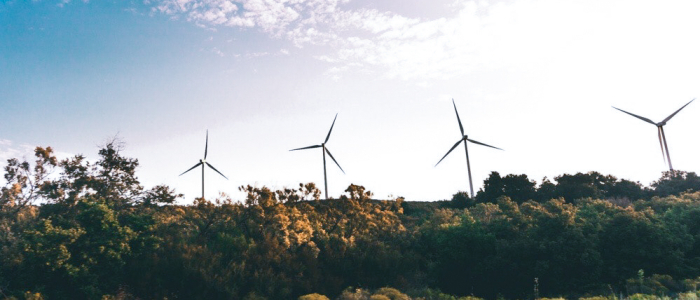
The Federal Ministry of Justice (Bundesministerium der Justiz) wants to make it easier for developers and operators of renewable energy installations and telecommunications infrastructure to inspect the land register. This is in response to current obstacles to expanding renewable energies, rolling out fibre optic infrastructure across Germany and implementing the latest mobile communications standard and at the same time gives impetus to the energy transition and digitalisation in Germany.
Obstacles to the expansion of renewable energies and digitalisation
Developers and (potential) installation operators need to identify the owners of suitable plots of land at an early stage of project development in order to successfully negotiate the acquisition or use of these plots. Under current rules, identifying suitable plots of land can involve a great deal of effort because access to the land register is often only granted subject to stringent and varying conditions, pushing developers to make their own local enquiries. This can significantly impede the expansion of renewable energies. In addition, radio tower companies and companies that operate other physical infrastructure necessary for telecommunications systems, such as cables, are often not considered to be telecommunications systems operators, meaning that land registries do not grant them access to the land register under section 86a Regulation on the Implementation of the Land Register Code (Verordnung zur Durchführung der Grundbuchordnung, “GBV”). Finally, land registries sometimes have very stringent requirements for specific plans as referred to in section 86a(1), sentence 2, no. 2 GBV. This causes delays in the development of new mobile communications sites and the expansion of digital communications infrastructure.
Renewable energy and hydrogen installations
The Federal Ministry of Justice’s initial draft dated 6 November 2023 (“initial draft”) is therefore aimed at amending the GBV, in particular by introducing a new provision on the privileged treatment of specific installations. According to section 43a, certain companies will generally be deemed to have a legitimate interest in inspecting the land register if they declare that they intend to develop or operate specific installations on the land. The presumption of this legitimate interest will allow them to inspect the land register in accordance with section 12(1), sentence 1 Land Register Code (Grundbuchordnung). This includes companies that operate or are planning to operate installations for the generation of renewable energies within the meaning of section 3, no. 21 Renewable Energy Sources Act (Erneubare-Energien-Gesetz), for the electrochemical production of hydrogen or for the generation of electricity from hydrogen, including all associated facilities that are directly used for transmission. The German government sees the construction and operation of these installations as important goals against the background of climate change and geopolitical developments in the energy market.
Section 43a of the initial draft is intended to standardise and simplify the requirements to be met by these companies to enable them to inspect the land register at an early stage. It will not be necessary for the planned installations to be permissible or have been authorised under public law. Nor will the companies have to demonstrate that the land is suitable for the construction of the installations. All that will be required for a company to inspect the land register is that the project is in an early stage of development.
Radio tower and other telecommunications infrastructure companies
Section 86a(1), sentence 1 GBV is to be amended to extend the definition of utilities to include radio tower companies and companies that operate the physical infrastructure necessary for the operation of telecommunications systems, such as cables. They will be granted access to the land register if they have a legitimate interest. Currently a legitimate interest only exists if the envisaged installation has already been included in the network development plan. The amendment of section 86a(1), sentence 2, no. 2 GBV will however create a legitimate interest simply on the basis of the installation falling within the search area designated for the expansion of the mobile communications network. Mobile network operators generally provide radio tower companies with such search areas in which plots of land are to be identified for the construction of a mobile communications site. The amendment will reduce the requirements for what constitutes specific plans and allow these companies to inspect the land register during their search for suitable sites. All companies essential to the telecommunications infrastructure will therefore be treated equally.
United Nations Sustainable Development Goals
The aim of the planned amendments to the GBV is to make it possible for certain companies to inspect the land register in the first place, and in some cases to simplify and standardise access. The initial draft is therefore in line with the United Nations Sustainable Development Goals to “ensure access to affordable, reliable, sustainable and modern energy for all” and “promote peaceful and inclusive societies for sustainable development, provide access to justice for all and build effective, accountable and inclusive institutions at all levels”. It also contributes to the achievement of target 9.1, namely to develop regional and transborder infrastructure to support economic development.
Summary and outlook
The proposed changes will make it easier for project developers and operators to assess whether projects can actually be developed and constructed on a third-party property. They will reduce bureaucratic hurdles and provide a further boost for the construction of additional renewable energy and hydrogen installations as well as telecommunications infrastructure in the future.
